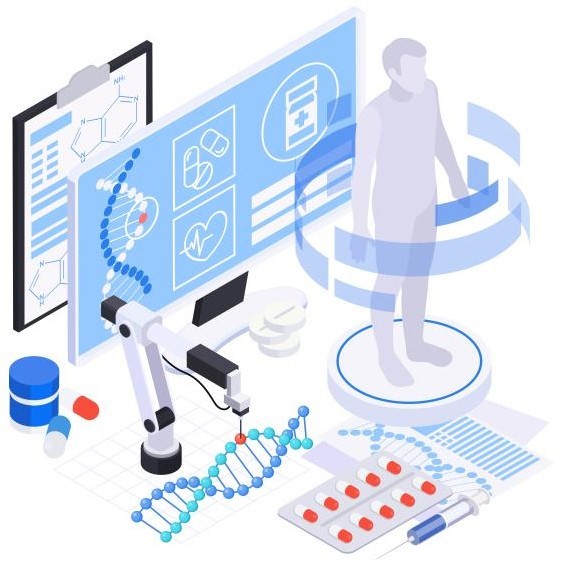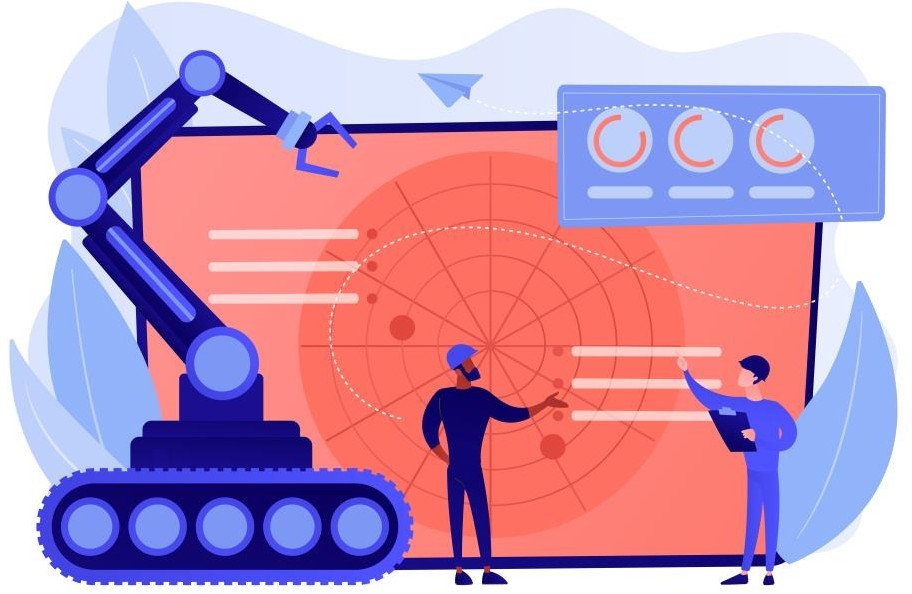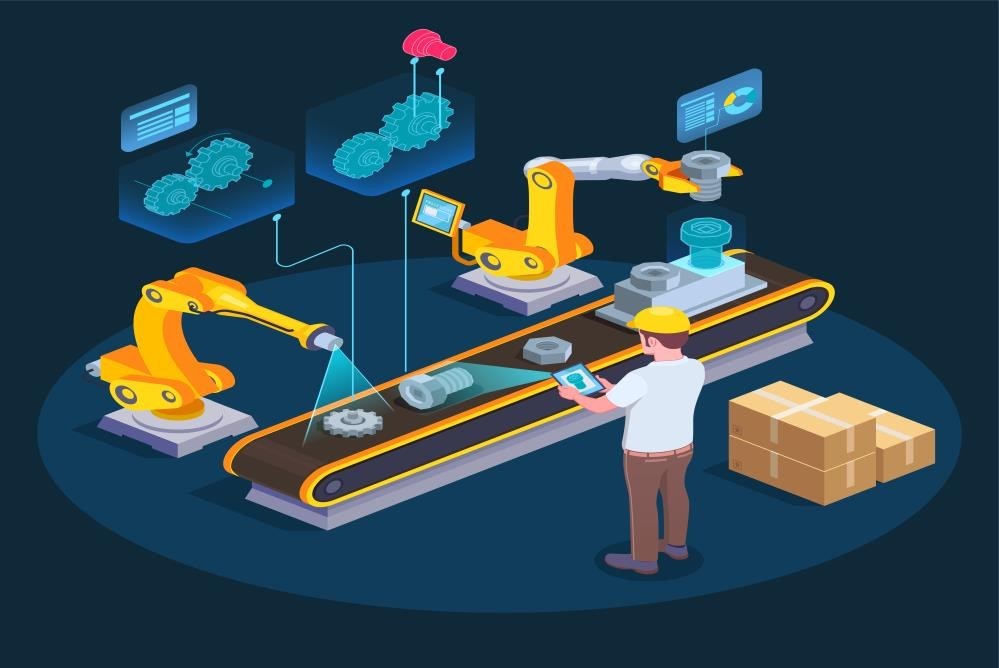
Machine learning has become an integral part of various industries, revolutionizing the way businesses operate and make informed decisions. By leveraging algorithms and statistical models, machine learning algorithms analyze vast amounts of data to identify patterns, make predictions, and automate complex tasks. This article explores the real- world applications of machine learning in different industries, showcasing how this technology has been successfully implemented to drive innovation, improve efficiency, and generate valuable insights. From finance and healthcare to retail and manufacturing, we will delve into specific examples that demonstrate the transformative power of machine learning in solving industry-specific challenges and unlocking new opportunities for growth.
Understanding Machine Learning
Machine learning is like having a super-smart assistant who learns from data to make predictions and decisions without being explicitly programmed. It’s all about teaching computers to think and learn like humans. Pretty cool, right?
Importance of Machine Learning in Industry
Machine learning is taking industries by storm and for good reason. It has the power to transform how businesses operate and make decisions. By analyzing large amounts of data, machine learning algorithms can uncover patterns, make predictions, and provide valuable insights that can drive innovation, improve efficiency, and boost profits.
Machine Learning in Finance and Banking

Fraud Detection and Prevention
Machine learning is the guardian angel of finance, sniffing out fraudulent activities and saving the day. By analyzing millions of transactions and detecting unusual patterns, machine learning algorithms can quickly flag potential fraud and protect both customers and financial institutions from harm.
Loan Underwriting and Risk Assessment
Machine learning algorithms are shaking up the lending industry by automating the loan underwriting process. They analyze an applicant’s credit history, financial data, and other relevant information to assess risk and make accurate lending decisions. Faster loan approvals and reduced human bias? Sign up?
Algorithmic Trading and Stock Market Analysis
Machine learning is giving financial traders a run for their money, quite literally. Algorithms can analyze vast amounts of historical and real-time market data to predict stock prices, identify trading opportunities, and optimize investment strategies. Who needs fortune tellers when you have machine learning?
Machine Learning in Healthcare and Medicine

Disease Diagnosis and Detection
Machine learning is playing doctor and doing it with impressive accuracy. By analyzing patient data, electronic health records, and medical images, machine learning algorithms can help diagnose diseases, detect early warning signs, and recommend personalized treatment plans. Goodbye, guessing games.
Patient Monitoring and Predictive Analytics
Machine learning algorithms can keep a watchful eye on patients’ health by analyzing real-time data from wearable devices, monitoring vital signs, and spotting any deviations or anomalies. It’s like having a guardian angel in your Fitbit, ensuring timely intervention and proactive care.
Drug Discovery and Development
Machine learning is speeding up the drug discovery process and revolutionizing pharmaceutical research. By analyzing vast amounts of biological data, genetic information, and molecular structures, machine
learning algorithms can identify potential drug candidates, predict their efficacy, and accelerate the development of life-saving treatments. Move over, slow and expensive research methods!
Machine Learning in Retail and E-commerce

Personalized Recommendations and Customer Segmentation
Machine learning knows what you want even before you do. By analyzing your browsing history, purchase patterns, and preferences, algorithms can serve up personalized product recommendations that make online shopping a breeze. It’s like having a virtual personal shopper who truly gets you.
Supply Chain Optimization
Machine learning algorithms can optimize the supply chain like a well-oiled machine. By analyzing demand patterns, inventory levels, and logistics data, they can predict demand, optimize inventory management, and streamline the entire supply chain process. Saving time, reducing costs, and keeping everything running smoothly? Yes, please!
Pricing and Demand Forecasting
Machine learning algorithms are masters of predicting the future, at least when it comes to market demand and pricing. By analyzing historical data, market trends, and customer behaviour, they can accurately forecast demand, optimize pricing strategies, and maximize profits. Who knew machines could have such a knack for business savvy?
And there you have it! Machine learning is revolutionizing industries from finance to healthcare, and retail to e-commerce. It’s like having a genius assistant who can analyze mountains of data, uncover hidden patterns, and make predictions that humans could only dream of. So, let’s welcome our new robot overlords with open arms because they’re here to make the world smarter, faster, and a whole lot more efficient.
Machine Learning in Manufacturing and Supply Chain
Manufacturing and supply chain operations can greatly benefit from the application of machine learning. Here are some specific examples

Quality Control and Defect Detection
Machine learning algorithms can analyze large amounts of data to identify patterns and anomalies that may indicate manufacturing defects. By continuously monitoring the production process, machine learning models can help in real-time detection of quality issues, reducing waste and improving overall product quality.
Predictive Maintenance and Equipment Failure Prevention
Machine learning algorithms can analyze sensor data from equipment to detect patterns that precede equipment failures. By predicting maintenance needs in advance, manufacturers can schedule maintenance proactively, minimizing unplanned downtime and optimizing equipment utilization.
Inventory Management and Optimization
Machine learning algorithms can analyze historical sales data and other relevant factors to accurately forecast demand and optimize inventory levels. This ensures that manufacturers have the right amount of products at the right time, minimizing stockouts and reducing excess inventory costs.
Machine Learning in Transportation and Logistics
The transportation and logistics industry can leverage machine learning to improve efficiency and customer satisfaction. Here are some examples:

Route Optimization and Vehicle Routing
Machine learning algorithms can analyze various factors such as traffic patterns, weather conditions, and delivery schedules to optimize routes and improve delivery efficiency. This reduces fuel consumption, lowers transportation costs, and enables faster deliveries.
Delivery Time Estimation and Demand Forecasting
By analyzing historical traffic and delivery data, machine learning models can estimate accurate delivery times and help logistics companies manage customer expectations. Additionally, machine learning algorithms can forecast demand, allowing companies to optimize their fleet size and allocation.
Fleet Management and Predictive Maintenance
Machine learning can enable real-time monitoring of vehicle health, allowing companies to predict maintenance needs and avoid breakdowns. By proactively scheduling maintenance, companies can ensure their fleet operates smoothly, reducing downtime and increasing operational efficiency.
Machine Learning in Marketing and Advertising
Machine learning has revolutionized marketing and advertising, enabling targeted campaigns and better customer insights. Here are some applications:

Customer Segmentation and Targeted Advertising
Machine learning algorithms can analyze customer data to segment them into groups with similar characteristics and preferences. This allows companies to tailor their advertising messages and promotions to specific customer segments, increasing the effectiveness of their marketing campaigns.
Ad Campaign Optimization and Conversion Rate Prediction
Using machine learning, marketers can analyze the performance of their advertising campaigns in real-time and make data-driven decisions to optimize them. Additionally, machine learning models can predict the likelihood of conversions, helping marketers allocate their resources effectively and maximize their return on investment.
Sentiment Analysis and Social Media Monitoring
Machine learning techniques can analyze social media data to understand customer sentiment and monitor brand perception. This helps companies identify trends, respond to customer feedback, and make informed marketing and branding decisions.
Machine Learning in Energy and Utilities
Machine learning is transforming the energy and utilities sector by enabling efficient operations and intelligent decision-making. Here are some examples:

Energy Demand Forecasting and Load Management
Machine learning algorithms can analyze historical energy consumption data and external factors like weather patterns to forecast energy demand accurately. This helps utilities optimize their energy generation and distribution, reducing costs and ensuring a stable supply.
Smart Grid Optimization and Energy Efficiency
Machine learning can optimize the operations of smart grids by analyzing real-time data from sensors and smart meters. This enables utilities to balance supply and demand, detect anomalies, and promote energy efficiency in the grid.
Fault Detection and Predictive Maintenance in Power Plants
Machine learning algorithms can continuously monitor sensor data from power plants to detect potential faults or anomalies. By predicting maintenance needs and identifying potential issues, utilities can avoid costly breakdowns, improve plant efficiency, and minimize downtime.
In each of these industries, machine learning is revolutionizing operations and enabling organizations to make data-driven decisions for better efficiency, productivity, and customer satisfaction. In conclusion, machine learning has emerged as a game-changer across diverse industries, enabling organizations to harness the power of data and extract meaningful insights. From enhancing fraud detection in finance to improving patient care in healthcare, the applications of machine learning are vast and continually expanding. As technology advances and more data becomes available, the potential for machine learning to drive innovation and transformation in industry is limitless. By embracing this powerful technology, businesses can stay ahead of the curve, adapt to changing market dynamics, and unlock new opportunities for success in the digital age.



